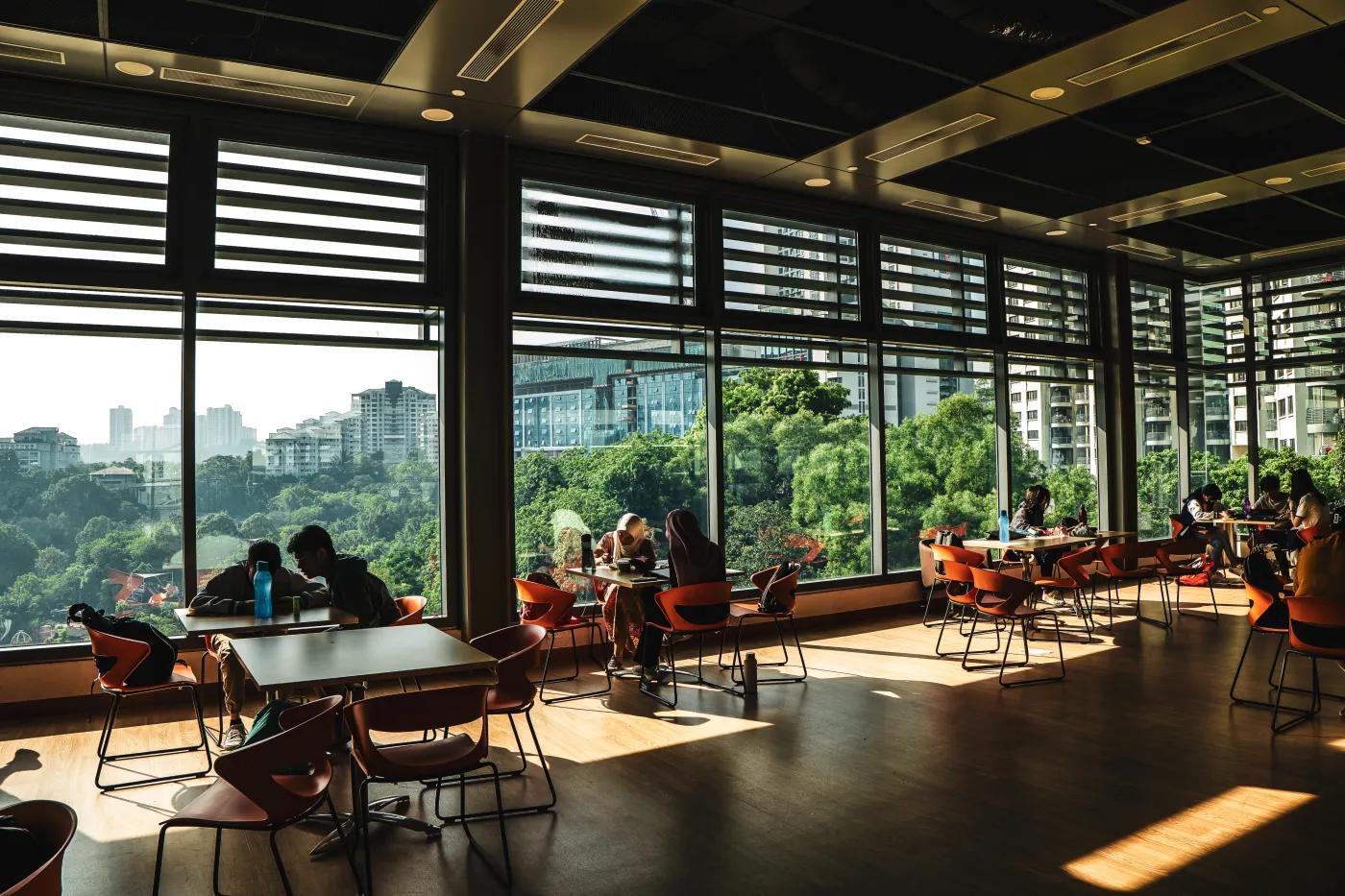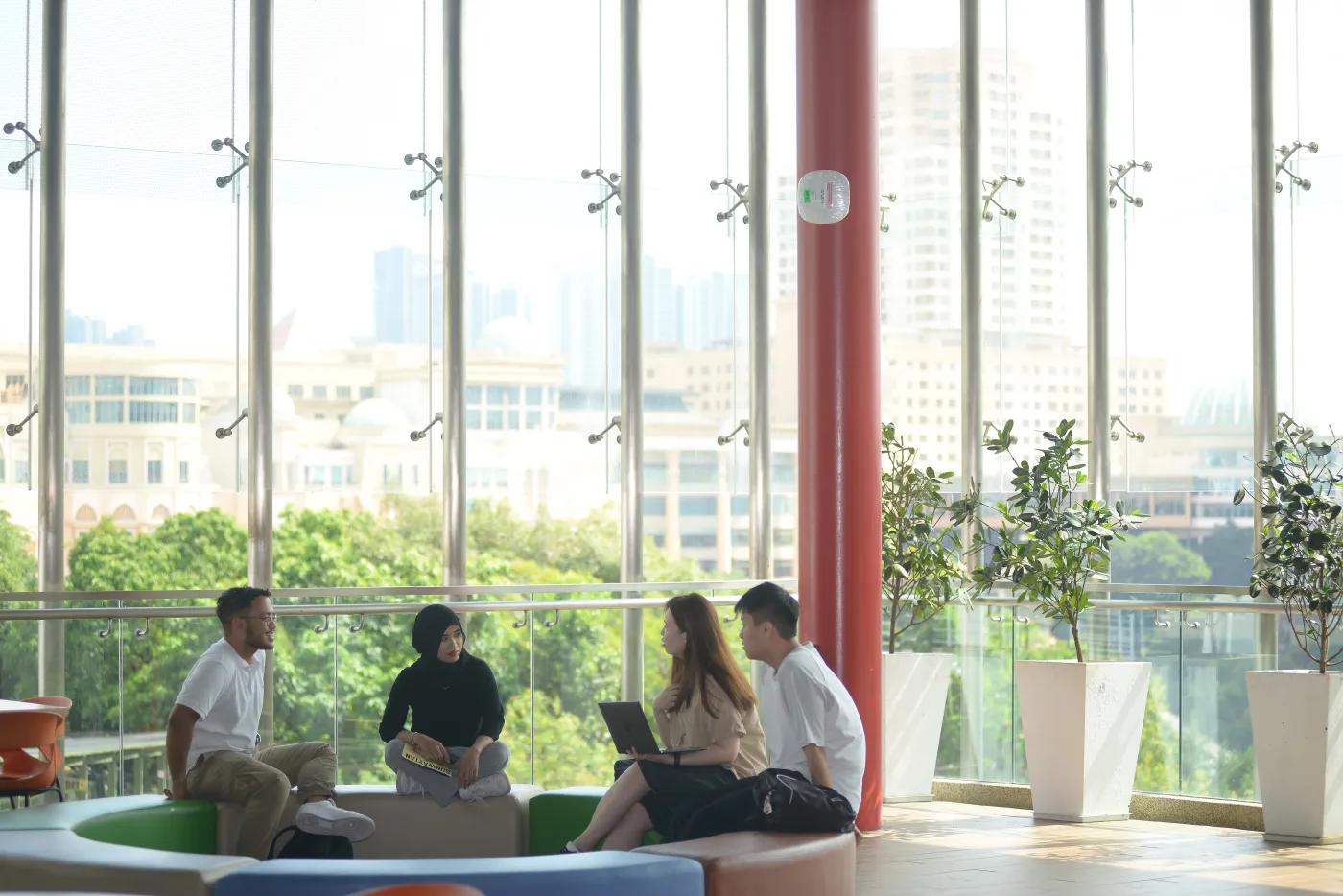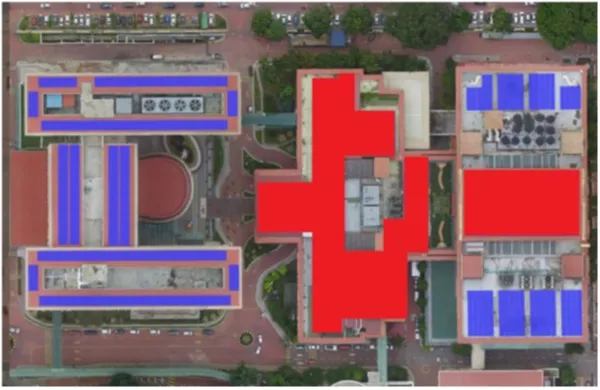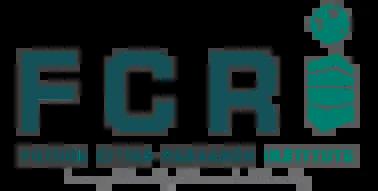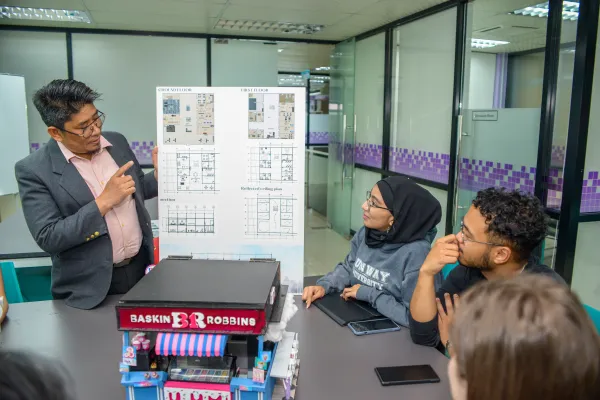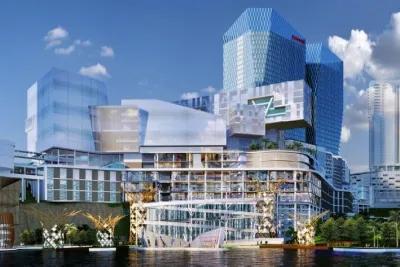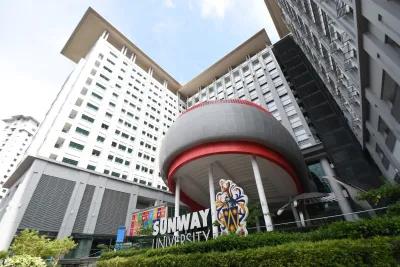Focus Areas
Leadership | |
• Sustainable Green Building Infrastructure In the University’s auditoriums, only thin curved sheets were used for the cladding which is enough to provide rigidity and surface uniformity despite its thinness. The metal is made to look translucent by a play of perforation, detachment and hidden lights, turning the facility into a dynamic space for the connection of minds and people. Energy-efficient building choices can be seen through passive cooling, natural ventilation, natural lighting and built-in UV shielding features. |
Research | |
Education |
Operations | • Jeffrey Sachs Centre on Sustainable Development attends 9th World Forum “New Urban Agenda” The theme for WUF9 was Cities 2030 - Cities for All: Implementing the New Urban Agenda, a theme that resonates with JSC’s own aspirations to be the leading Center of research and knowledge for cities in Southeast Asia (SDG11: Sustainable Cities and Communities). The Jeffrey Sachs Center shared its work in areas such as education, energy solutions, and social inclusion of children, youth and the elderly. |
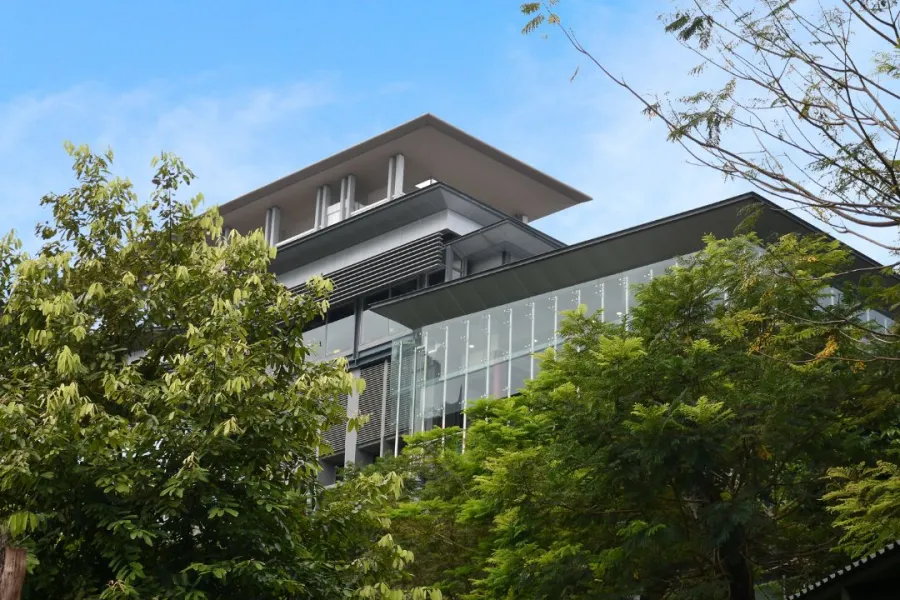
Related Policies
- Green Building (PDF, 252KB)
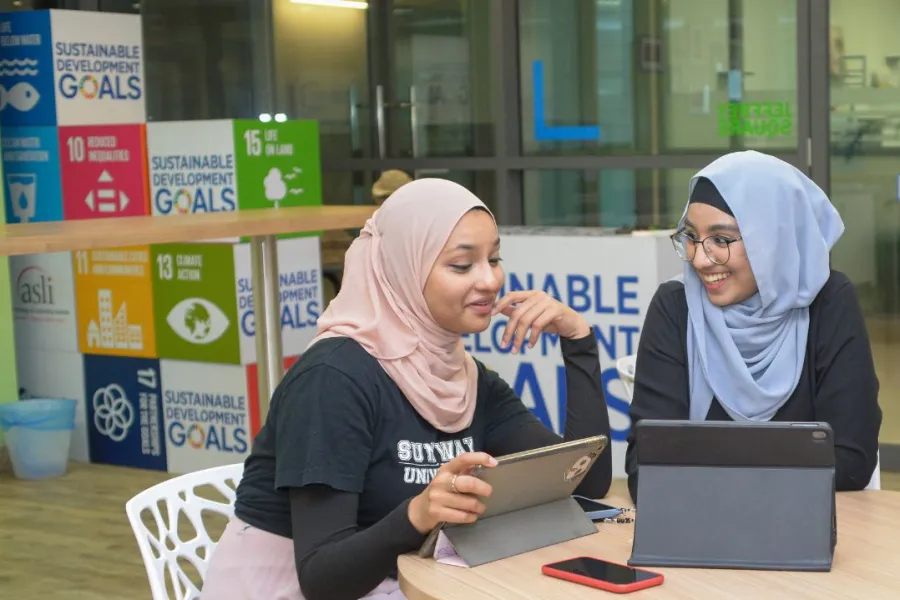
Activities/Student-led Initiatives
Activities / News
Sunway University’s Futuristic Expansion Plan
Sunway’s implementation of green building designs is reflected in many of our major projects and commitments. In 2019, the University began plans for physical infrastructure expansion to accommodate the next phase of University development with an expected population growth to double by the year…
Sunway University’s State of the Art New Campus for the Future
The year 2015 was a landmark year for Sunway University. In March we opened our brand-new campus building providing approximately 800,000 square feet of state-of-the-art facilities.




